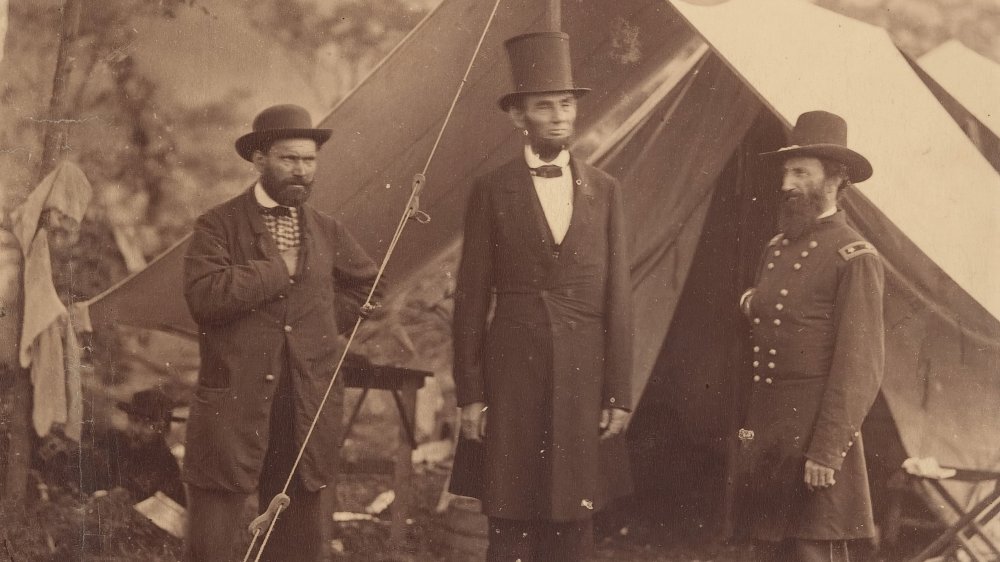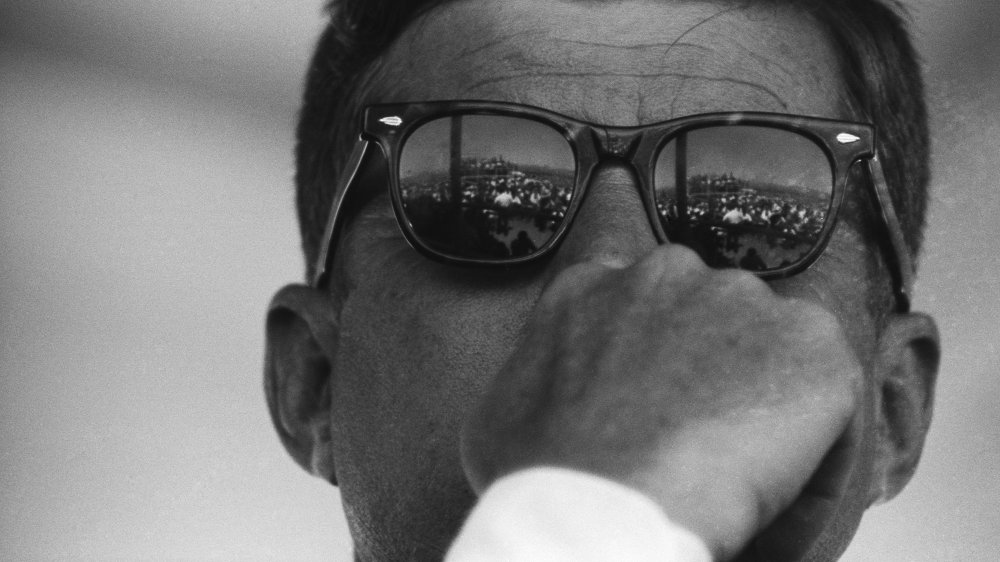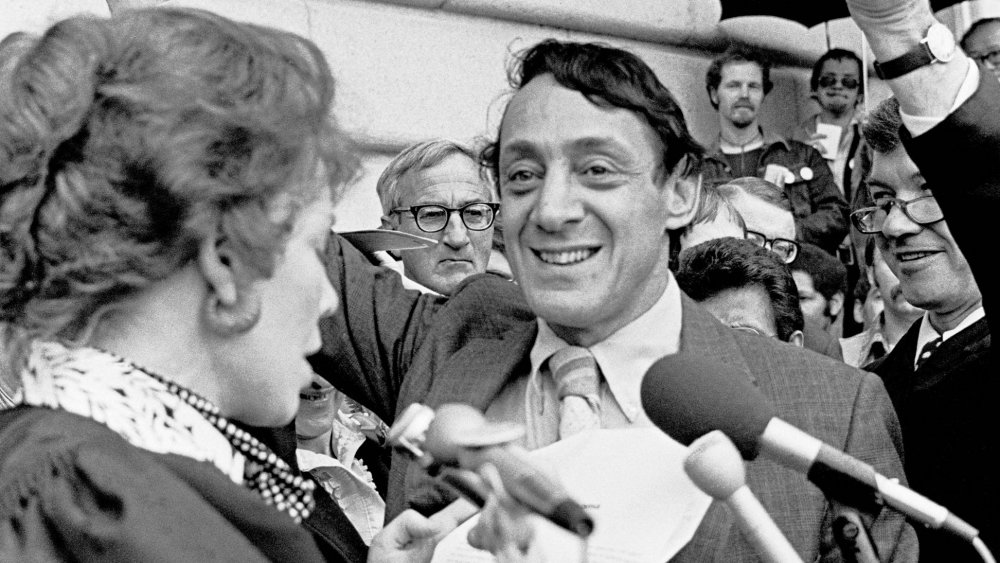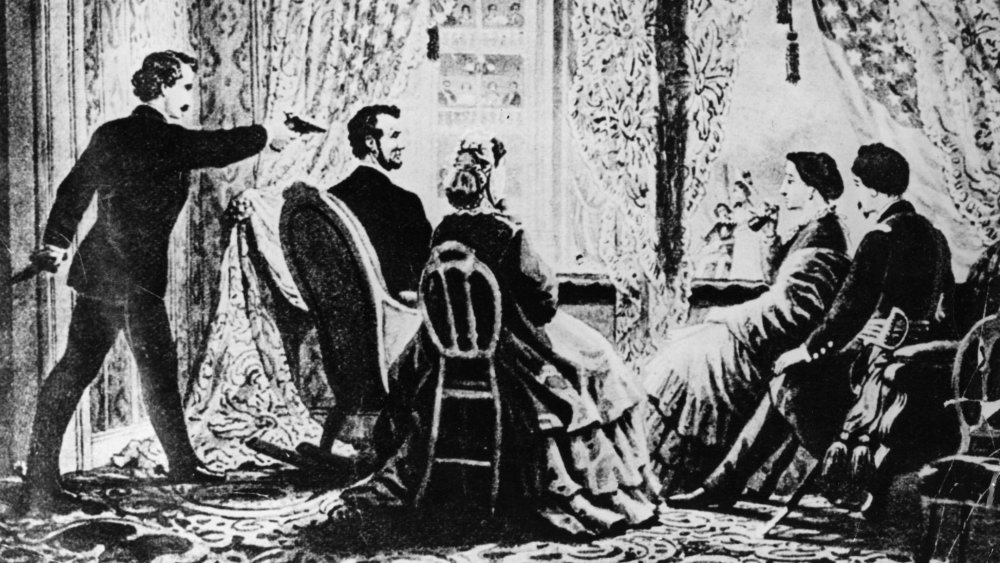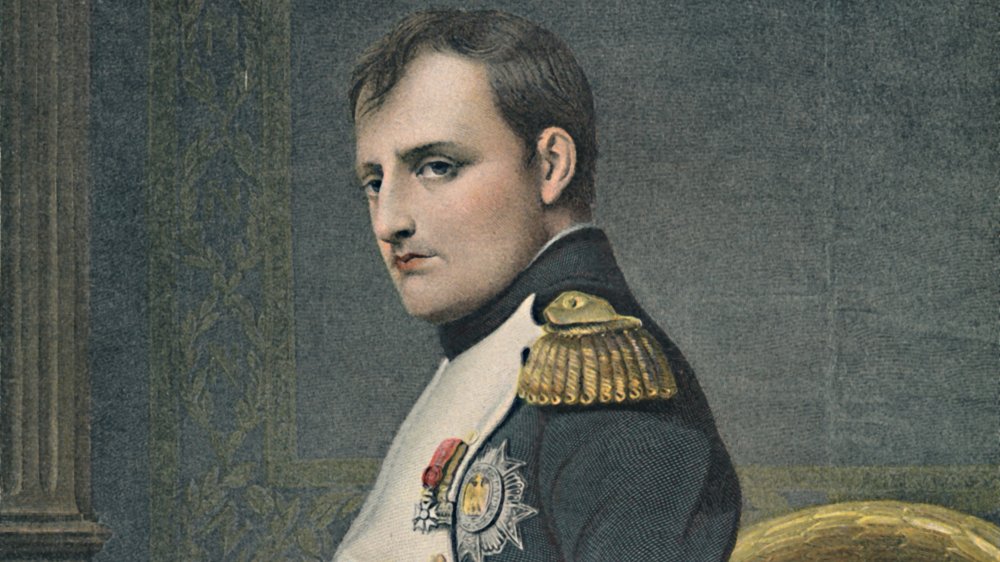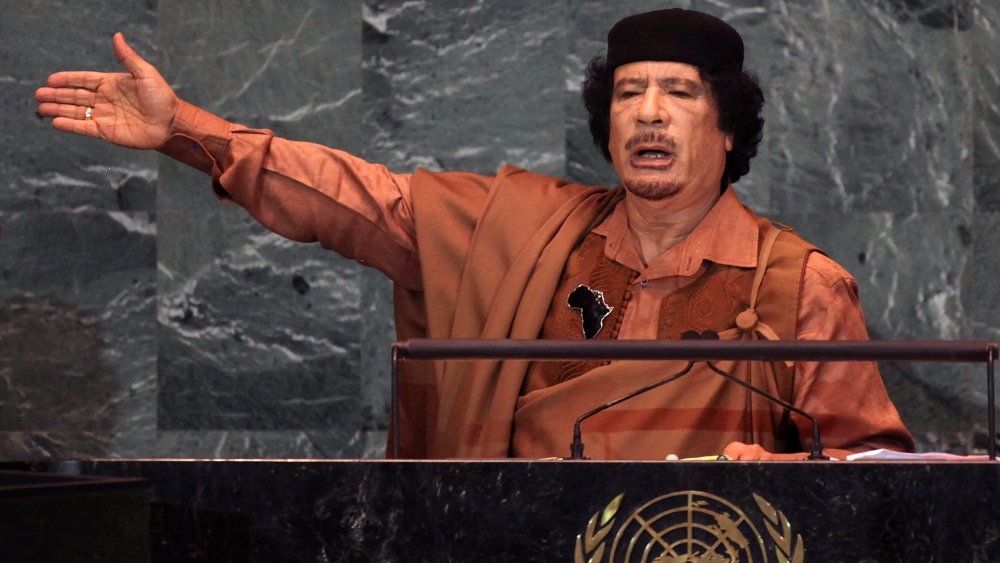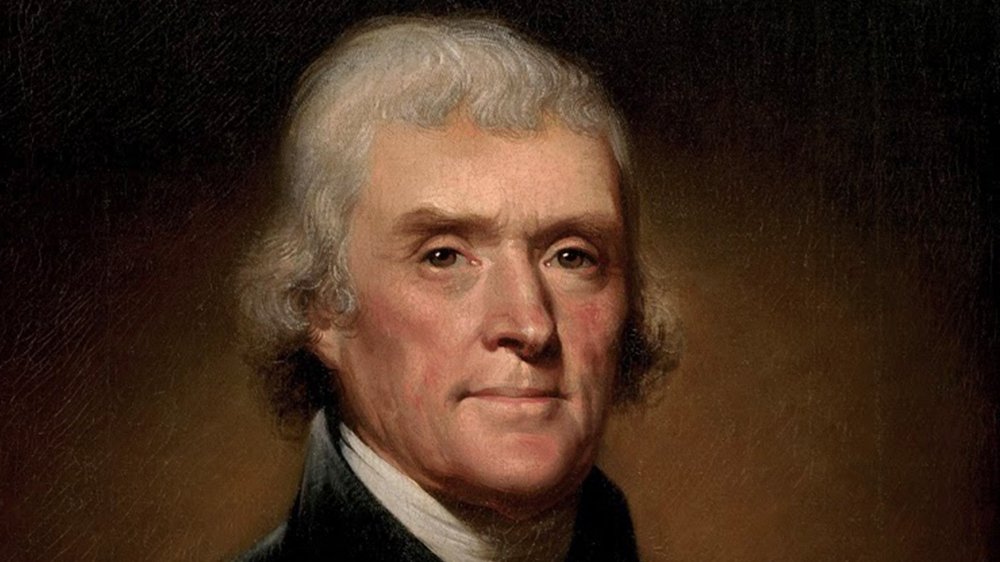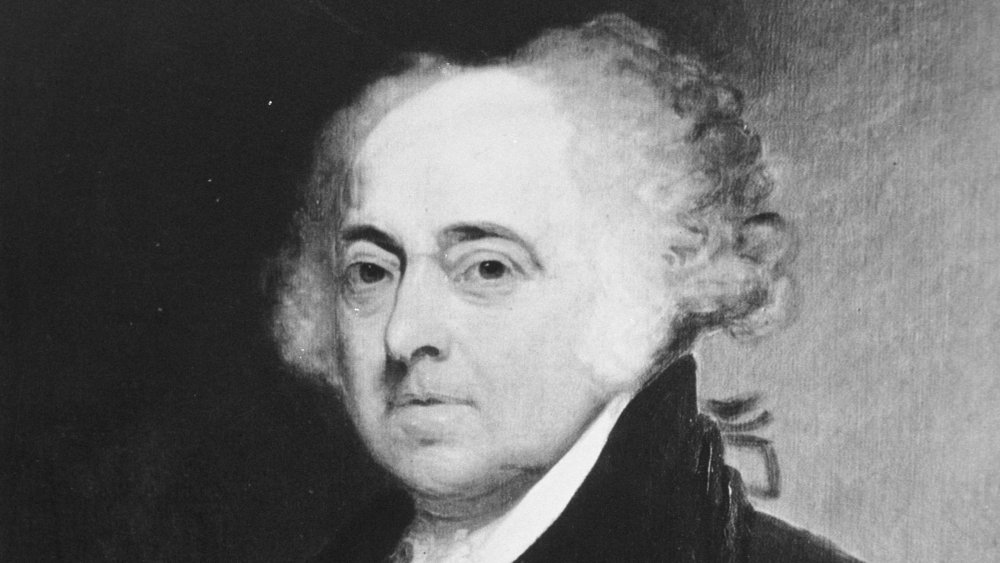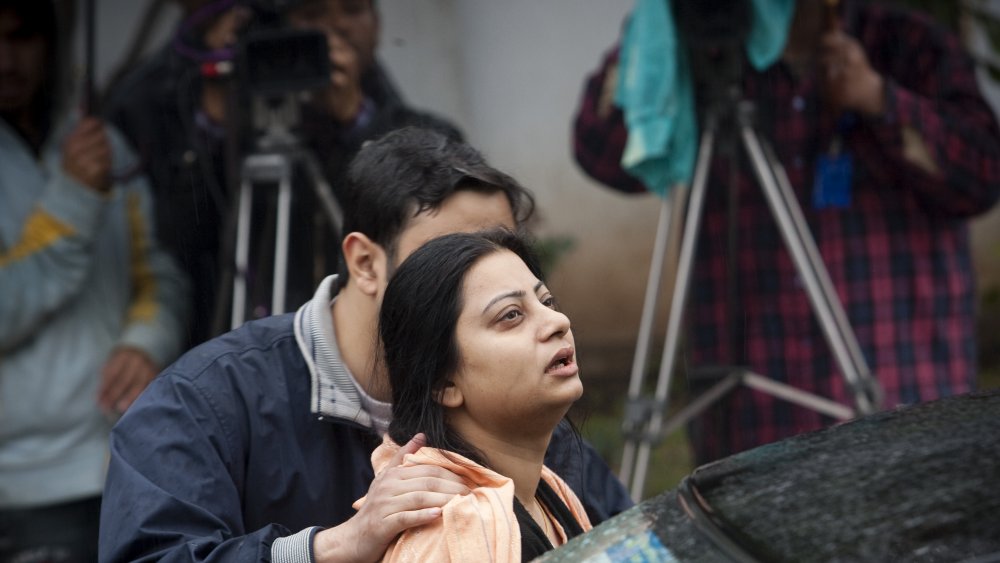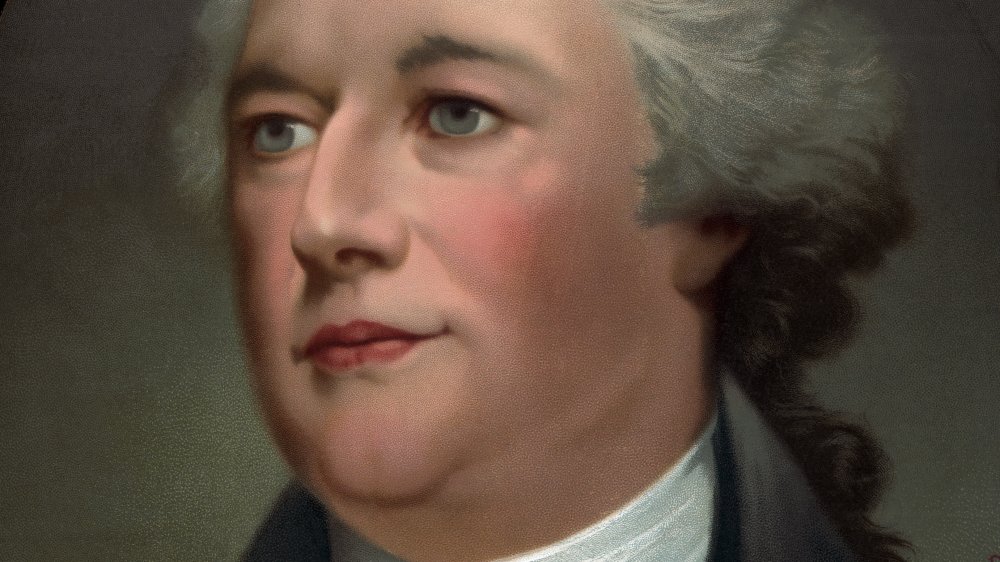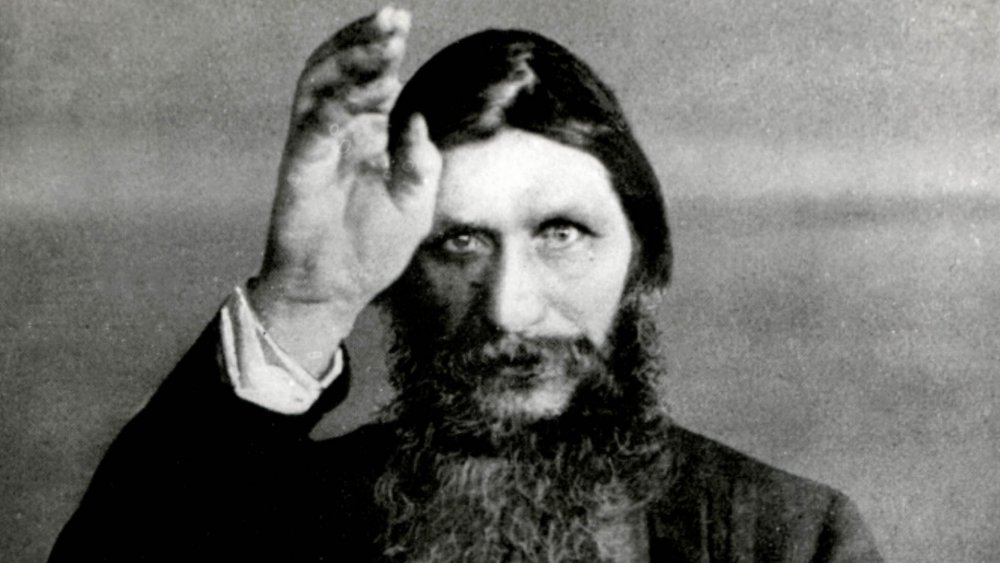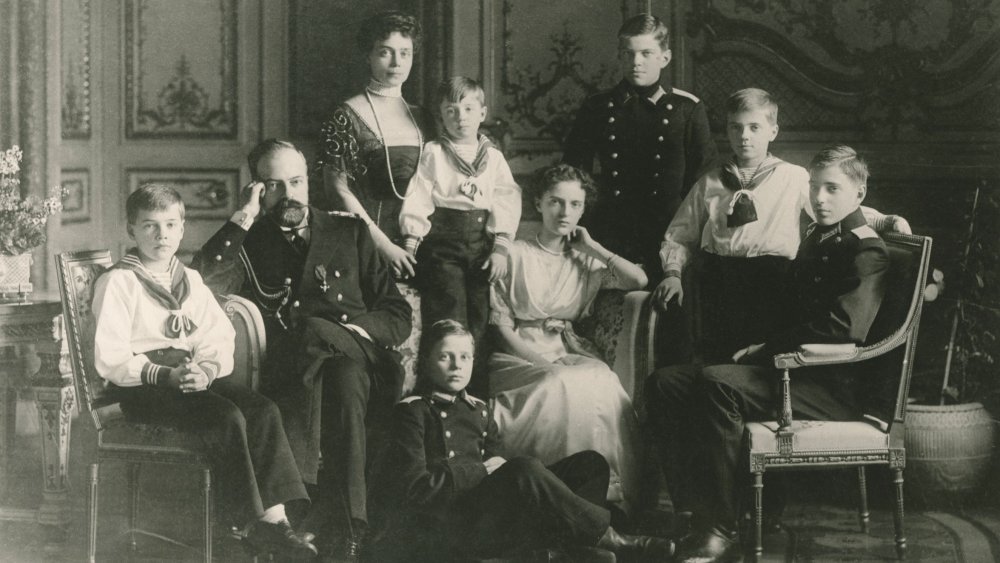Politicians Who Predicted Their Own Deaths
We all die, so when someone "predicts" their own death, it's arguably inevitable one way or another, right? And yet, there is something so endlessly fascinating about people who seem to have special insight into when and how they are going to go. Death predictions may be morbid, but we all love a good eerie coincidence.
Politics is, and always has been, a nasty business. Politicians lead highly public and often volatile lives. High profile politicians often fear for their lives when they dare to ruffle the feathers of their enemies. It's no wonder that more than a few politicians have prophesied their own ends. From well-planned assassinations to decades-long conspiracy theories, these leaders saw the light at the end of the tunnel before those around them could. Some politicians tried to control their own narrative for the history books, some soldiered on in their careers, while others refused to go gentle into that good night. These are the stories of politicians who predicted their own deaths.
President John F. Kennedy and the looming shadow of death
President John F. Kennedy's assassination is arguably one of, if not the most compelling lingering conspiracy theory in American history. And while the mystery of who shot Kennedy is still widely contested, it turns out that Kennedy himself was consistently haunted by the shadow of his own demise.
In early 1964, Jacqueline Kennedy gave a series of seven undisclosed interviews which were later released as part of the 50th anniversary of the Kennedy administration. In one of the interviews, Jackie Kennedy revealed that a year prior to his death, her husband knew his first presidential term would be cut fatally short.
Due to his involvement with the Cuban Missile Crisis, Kennedy told her, "If anyone's going to kill me, it should happen now." But his worries about being assassinated didn't end there.
President Kennedy had a conversation with his close friend, Dave Powers, the week leading up to his death. According to the Week, Kennedy dreaded traveling to Texas, and "had a terrible feeling about going."
On the morning of his assassination on November 22, 1963, Kennedy mused to wife and top aide, Ken O'Donnell that, "Last night would have been a hell of a night to assassinate a president." Later that day, O'Donnell determined the lack of rain was a good omen and instructed the Secret Service to take the bubbletop off of Kennedy's 1961 Lincoln Continental, which was where he was fatally shot.
Gay rights icon Harvey Milk prepared for his murder
California's first openly gay elected politician, Harvey Milk, was assassinated just a year after he took office on San Francisco's Board of Supervisors. Not only was he an LGBTQ pioneer and avid gay rights activist, but he made national headlines when he sponsored an ordinance that fined people for not cleaning up after their dogs, which is still in effect today.
Milk knew his progressive leadership would likely have consequences because his very election threatened the status quo. Not too long before he was assassinated, he recorded a tape that was released by his associates. Milk had instructed them to share it only in the event of his death.
Milk was brutally gunned down in front of City Hall at the age of 48 by a fellow city politician.
"Knowing that I could be assassinated at any moment or any time," Milk says on the tape, per NBC News, "I feel it's important that some people know my thoughts." Later in the recording, he proclaimed, "If a bullet should enter my brain, let that bullet destroy every closet door in the country."
Benazir Bhutto was willing to die for her cause
The first female Pakistani prime minister, Benazir Bhutto, seemed aware of her fate long before her assassination. Her democratic-leaning politics cultivated many powerful enemies in the Middle East, from Al-Qaeda, to the Taliban, to the Pakistani establishment. Her father, a former Pakistani prime minister, had been assassinated by dictator General Zia ul-Haq in 1977. Under Zia's rule, Bhutto was jailed as a political prisoner, where the guards encouraged her to commit suicide.
Then prime minister Bhutto was murdered while giving a speech in December 2007, days before the general election. The mystery still looms as to who was actually responsible, but evidence suggests that she died at the hands of Islamic terrorists.
A couple of months before her death, Benazir Bhutto had been in self-imposed exile, and despite warnings from the government not to return because of questionable security measures, she traveled back to try to claim a third term as prime minister. After surviving a suicide bombing shortly after, Bhutto remained undeterred. In fact, in her autobiography, Daughter of Destiny, she ends it by writing, "My death will be the catalyst of change." Not long after her assassination, the Pakistan People's Party (PPP) came into power.
President Abraham Lincoln and prophetic dreams
Another iconic president who died before his time, Abraham Lincoln predicted he would be killed because of his political leadership in the bloody and divisive American Civil War. Tensions were astronomically high in America as the North and South fought in a war that would change the very fabric of the young nation.
The story goes that just days before his infamous assassination at Ford's Theatre on April 14, 1865, Lincoln recalled a dream of his to former law partner, and occasional bodyguard, Ward Hill Lamon. According to History, Lincoln had shared his dream with a few people, including wife Mary Todd Lincoln, and Lamon. In the dream, Lincoln walked into the East Room of the White House to find a covered dead body, surrounded by soldiers and a mourning crowd. When Lincoln asked one of the soldiers who had died, the soldier said, "The president. He was killed by an assassin."
According to members of Abraham Lincoln's cabinet, Lincoln had shared a recurring dream he had the night before his assassination. In the dream, he was floating over an unknown body of water. Apparently he only had this dream before important Civil War milestones occurred.
Take these stories with a grain of salt, as Lincoln himself admitted that he did not believe in dreams and many historians have questioned the validity of Ward Hill Lamon's account.
Napoleon wrote about how he would die in his will
French emperor Napoleon Bonaparte was seemingly prepping for his endless slumber when he amended his will three weeks before death at age 51, which he was convinced would be by assassination. "I die before my time, murdered by the English oligarchy and its assassin," he wrote in the will. Apparently, when you prance around conquering a ton of European countries, you become paranoid.
Death by arsenic is the popular theory, given the pristine state of his body postmortem, which means it's highly probable he was poisoned. Arsenic slows the decomposition of human tissue, a phenomenon known as "arsenic mummification." To this day, however, there is no concrete proof he was poisoned. Furthermore, if arsenic was indeed the cause of death, it still could have been from long-term exposure to the toxic fumes given off by the wallpaper in his prison home.
While it's admittedly a far more romantically morbid tale to believe he was poisoned at the hands of his enemies than by the wallpaper, we'll never know for sure. The edits to his will give ample evidence, however, that he knew the end was nigh.
Muammar Gaddafi predicted his death in a summit speech
In 2008, Muammar Gaddafi, leader of Libya, gave a speech at that year's summit of Arab leaders. His words would prove quite prophetic, including his fears that he would be disposed of.
In his address, Gaddafi discusses the fall of Saddam Hussein by the American military, despite his former allyship with American leaders. "One of these days," he says, "America may hang us." Gaddafi's concerns were based on the possible seizure of Libya's oil reserves, which were the largest in the African continent, and worth billions of dollars a year.
A few years later, Libyan rebels and NATO jets invaded Tripoli. While Gaddafi called on supporters to band together and defend Libya, he also made public that he believed there was an active conspiracy to seize Libya's oil supply. Two months later, he was killed. What's even eerier about the speech is that Syrian dictator Bashar al-Assad is in the audience, laughing at Gaddafi. Assad would later be accused of mass torture and crimes against humanity by the international legal community.
Thomas Jefferson and John Adams both die on the Fourth of July
Two of America's Founding Fathers, President Thomas Jefferson from Virginia, and President John Adams from Massachusetts, are known for both coincidentally dying on July 4, 1826, which was also America's 50th Anniversary. But there may be a more premeditated explanation for the 1 in 365 odds of them dying on the exact same day, and on such a specific day in American history.
Their simultaneous passings may have not been predicted, but there may be cause to believe they were planned. Jefferson and Adams may be long dead, but this fascinating mystery lives on.
Both men had been very ill prior to the date of death. 83-year-old Jefferson, reportedly refused his usual medication the night before his death. According to History, John Tyler, America's tenth and lesser-known president, later eulogized that Jefferson had repeatedly expressed his desire to die on the Fourth of July.
Adams and Jefferson were polar opposites, and later in life became great friends, but they had a healthy rivalrous competition between them. Was one trying to outlive the other?
John Adams' odd last words
John Adams' granddaughter recalled witnessing a doctor giving him "experimental medication" on the day of his death. Adams, who was 90-years-old, reportedly uttered his last words, "Thomas Jefferson still survives."
Many explanations have been posed for the unlikely coincidence. Some, like Daniel Webster, claimed divine intervention. Webster, who later became a Massachusetts congressman and senator, orated in his eulogy that he found their deaths to be "proofs that our country and its benefactors are objects of His care" and that the two men had been "gifts from Providence."
In a Bulletin of the Historic Society report, six various avenues are explored in detail, including the idea that Adams and Jefferson merely held on until the day of July 4, or they had assistance to do so. Nevertheless, scholars searched for a valid explanation. "When appeals to coincidence are insufficient," Margaret P. Battin wrote, "We must look for explanations in common circumstance or common cause, or for causation from one case to the other."
It is very possible that the two men both managed to simply hold on for the country's anniversary. Scientific evidence supports the idea that people have the willpower to stay alive for a specific event or holiday. This one may just be an overly-romanticized American origin story, but it's still worthy of speculation.
Shahbaz Bhatti pleaded for protection from the international community
Pakistani cabinet minister Shahbaz Bhatti directly told Canadian politician Jason Kenney that he "expected to be killed and asked for help to be extended to his family after he was dead," while visiting Ottawa in February of 2011, according to Maclean's.
Why would someone want him dead? Apparently the threat to Bhatti's life was common knowledge. It is likely that Bhatti, who was the only Christian member of Pakistani President Asif Ali Zardari's cabinet, was killed by Muslim extremists. Bhatti had been calling for changes to Pakistan's blasphemy laws, which prohibits speaking against the prophet Muhammed. These laws are weaponized to persecute religious minorities in Pakistan. Pakistan had a five percent Christian population at the time.
Bhatti decided to travel to Europe, the U.S., and Canada to seek protection for religious minorities in his country after a governor of one of Pakistan's provinces was killed by his own bodyguard weeks before. While in Canada, Bhatti told Kenney he had been denied additional requested security and was troubled by it. When Kenney suggested that he not return to Pakistan without it, Bhatti said he had no choice, asking Kenney that he look after his family "when he was killed."
"It was only for him a matter of when and not if," Kenney told Maclean's.
Alexander Hamilton may have calculated his dramatic departure
The infamous duel that led to the premature death of George Washington's right-hand-man, Alexander Hamilton, is widely contested by historians.
Both Hamilton and Burr were extremely ambitious and accomplished in their own right. The two had occasionally butted heads on the political stage, but when Burr ran for governor of New York in 1804, Hamilton made it his mission to keep Burr from winning. This is what propelled Burr to challenge Hamilton in order to defend his honor.
The common belief is that Hamilton's angry rival, Aaron Burr, challenged him to a duel, and Hamilton was conflicted as to whether he should accept the offer. But according to Nathaniel Pendleton, Hamilton's second in the duel, General Hamilton had "made up his mind to meet Mr. Burr before he called on me."
According to History Net, after accepting the "interview" with Burr, Hamilton wrote what some consider a calculating farewell letter to his wife, Eliza, believing he was aiming for martyrdom.
Alexander Hamilton wrote that he opposed dueling and that taking a life went against his Christian principles, so he did not intend to fire at Burr. Evidence suggests, however, that Hamilton fired his gun first. Was this a well-orchestrated suicide mission? We'll never know for sure.
Tsar Nicholas II and Rasputin's eerie prophecy
Grigori Rasputin was a mysterious and controversial presence that had a hefty influence on the last Romanov family, headed by Tsar Nicholas II. His supposed healing powers helped ail the young son of Tsar Nicholas and Tsarina Alexandra, Alexei, who suffered from hemophilia. Rasputin terrified Russian nobles and members of the royal family because of his strong favor with Nicholas and Alexandra, and many were plotting on how to get rid of him. They literally referred to him as the "Holy Devil."
Rasputin was assassinated by a group of nobles, led by Prince Felix Yusupov in late 1916.
According to Rasputin's secretary, Aron Simanovich, Rasputin wrote a letter the month he was killed, and his predictions would prove eerily accurate. Having survived a previous assassination, the second attempt would prove fatal for not only him but the Romanovs as well. "If it was your relations who have wrought my death," Rasputin wrote, "then none of your children will remain alive for more than two years." Less than two years later, Nicholas II's family was executed.
The last Tsar and a prophecy fulfilled
If Rasputin's letter of prophecy to Nicholas was indeed real, it could have been a major reason why Tsar Nicholas II feared for his life and the life of his wife and children leading up to his tragic demise. After all, a member of the royal family had killed Rasputin.
His monarchical abdication in 1917, however, was another clear sign he feared for his life and the future of his family. Revolution was on the horizon, and threats of a forceful transference of power were in the air. Nicholas wished to travel to the United Kingdom to go into exile after giving up his birthright as Tsar, but he could not find asylum there. In Nicholas's diary (displayed at the Science Museum, London), on the day of abdication, he wrote, "All around is treason, cowardice and deceit."
A little over a year after abdicating, Nicholas, his wife and children, the family doctor, and various servants, were all escorted down to the cellar of where the family was being watched by Soviet guards.
A statement of condemnation was then read aloud. "The presidium of the Regional Soviet, fulfilling the will of the Revolution, has decreed that the former Tsar Nicholas Romanov, guilty of countless bloody crimes against the people, should be shot." Countless gunshots, stabbings, and beatings immediately followed, killing the entire family and their staff. Both Nicholas and Rasputin's darkest nightmares had been officially realized.
